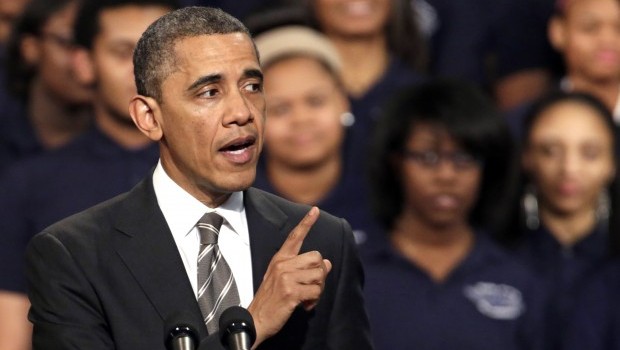Hezbollah is spilling blood in Syria and not along the borders with Israel. Iran is spending hundreds of millions of dollars like a crazy gambler who just lost a game—its actions in Syria resembling those of a wounded animal driven to madness. The Assad regime is bleeding heavily for the first time after forty years of abusing others. Meanwhile, Russia remains insistent upon aiding a defeated regime with weapons, conferences, and vetoes.
On the surface, this scene seems ideal for US president Barack Obama. It is like a successful businessman making large profits whilst taking very little risk and spending only a few dollars. Obama wants to transform Syria into another Iraq for the Iranians and into a trap for Hezbollah and Russia. He also wants to get rid of Bashar al-Assad’s regime for less than the price of a phone call.
In reality, this is what has happened so far, perhaps without prior planning. But President Obama must be careful because the trap might actually be for him and his associates, and no one can bear to watch the situation unfold in Syria any longer. First of all, we are facing a horrific humanitarian tragedy. Secondly, we are witnessing the early stages of the most dangerous Al-Qaeda buildup since the 9/11 attacks; with the terrorist organization now gaining public sympathy, land, and aid. Everything that has been achieved over the past ten years is under the threat of evaporating in Syria. Iran and Syria want al-Zawahiri to inherit the Assad regime after Damascus falls, which would ruin everything that the revolution set out to achieve.
The extremist Jabhat Al-Nusra has over 15,000 elements and is fiercely fighting against Assad’s army, seizing centers, checkpoints, several districts, and a few cities. The movement is winning over the people of Syria because it is fearlessly taking on the enemy and spending a lot on the daily humanitarian needs of the citizens.
A source following developments in Syria told me that Jabhat Al-Nusra shares features of Al-Qaeda on the ideological level, but it tries to act differently in its dealings in order to gain the sympathy of residents and recruit their sons. This is how the movement has swelled and how its capabilities have become amplified compared to the Free Syrian Army, which, although boasting three times the number of fighters, is suffering from scarce resources and mounting pressure.
But what is the relationship between the Jabhat Al-Nusra and the free war policy Obama is rallying behind? The answer lies in the likely outcome.
When Al-Qaeda gains a foothold Syria, it will be more engrained and significant than all its previous manifestations from Afghanistan to Mali. It will then not be easy to dispel it from Syria regardless of whether the Assad regime falls or stays in power.
We all know that what prevented Assad from losing power was not his military strategy. It wasn’t even the large amount of aid he received from his allies, Russia and Iran. Rather, the Assad regime has remained because the opposition have been left isolated, armed with simple weapons, having to fight against all these factors at once. If aid and military protection had been provided to the opposition, especially considering the huge difference in the balance of power over the past two years, the Syrian regime would have fallen within a month.
I would like to remind President Obama that while Syria’s war may resemble a ‘perfect battle’ for the US, where rivals bleed without incurring any costs on the American side, the true price may be found in the next chapter, when Al-Qaeda gains control of the land of Syria and the emotions of its suppressed citizens. In the past, France was far from enthusiastic about participating in wars against terrorism. However, today we see it engaging in a difficult, perhaps drawn out, confrontation in the southern Sahara and northern Mali. This war came as a result of overlooking a long buildup of factors; and we may see a similar situation in Syria later on.
Save the Syrian people from the massacres and do not let them see Al-Qaeda as their only protector, otherwise we cannot blame them for rallying round the organization in the future.
